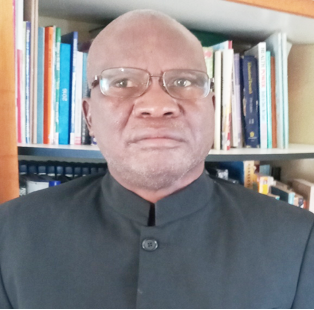It seems many Namibians who are politically-inclined have come to read, understand and implement Article 17 of the Namibian Constitution to the letter.
The Article guarantees political freedom, and the right to form and join political parties at will, provided it is done peacefully. The understanding of Article 17 is confirmed by the number of political parties registered to take part in the forthcoming elections on 27 November 2024.
Although this process is democratic, one may raise eyebrows when considering the population of this country, which stands at three million, against the number of registered political parties, which number almost 20.
This might go without saying that either the politicians who are coming to the fore now were either hibernating within other parties, or simply did not possess the marrow to stand up and voice their political agendas. It is true that this is their democratic right, but what are the new political parties going to offer which is different from older political parties?
It is no wonder it was recently reported that about three political parties are on the campaigning trail with almost similar manifestos. In some cases, the parties are regionally, tribally and even religiously-based. This scenario may raise a few issues from the national perspective which might confirm that apartheid has not died, and it is still alive and kicking. It equally illustrates a country without specific national
interests and a philosophy on which it is grounded.
In addition, nationalism is failing the nation, as most politically-inclined leaders feel they can only serve the country by forming a political party based on nothing else but ethnicity.
It is quite disturbing to witness that the philosophy of One Namibia One Nation is still an illusion after 34 years of nationhood.
As David Lamb (1986) points out in his book, The Africans, despite its advantages, nationalism has failed to take root in Africa because many African political leaders pay lip-ice service to the philosophy. In addition, Africans have not harvested tangible nationalistic fruits.
It is perhaps one of the reasons that lead to factionalism in many parties, as they wanted to have access to resources because others have been ‘eating’ on their behalf for a long time.
The issue of proliferation and registration of political parties at the eve of elections is equally astounding, to say the least. The main issue is the short time span in which the new political parties are to present themselves and their manifestos to the electorate. In a country like Namibia where the majority of citizens are either computer-illiterate or have no access to such media facilities, it is difficult to imagine the mode of communications the parties are going to use to reach out to the electorate.
Criss-crossing the vast country with its contrasting landscape of savannas, deserts and rivers makes it even more precarious and dangerous to negotiate the different features in many parts.
Bearing in mind the brief time slot at their disposal, the question might arise about the motive of forming such parties in haste. Another point to ponder is the membership of such parties, that besides the required number which was raised to register the party, are there enough members whose votes can catapult the parties into parliament? This scenario smells of desperation by the leaders of such parties.
If indeed the main objective of the opposition parties is to reform and change the political kaleidoscope, the best move was for all of them to come together and mount a political force against the ruling party. But with opposite parties, even those in parliament showing some cracks and fractions, the ruling party will always be in the comfortable political
zone.
If these faction-riddled opposition parties fail to unite on one national interest, the chances of unifying the country are as elusive as ever. Although many different reasons may be cited for forming political parties on election eve, the motive wallows in greed and self-aggrandizement.
The politicians have been ‘eating’ alone, without considering the plight of many Namibians. The hungry Namibians can no longer settle for crumbs that are falling from the political heavyweight’s table.
They feel ignored and thrown into the political doldrums of history, hence forming political parties at any cost and at any time will salvage their situation. As Lumumba, the renowned Kenyan lawyer and political analyst puts it, “Politics in Africa is the route to raw power, and those with power have no ideas, and those with ideas have no
power.”
Leaders of some parties are sometimes of the opinion that once they go into parliament, everything will come their way with ease.
These include buying farms, which has become a lucrative pastime and exercise once one enters the August House. And of course, some Namibians especially those living in rural areas and other places where services are hard to come by, are easily swayed by these politicians who have very little or no view of how to run the country at all.
It is not an overstatement to say that in some places, the government has made some developmental strides, but dismally failed in many parts of the country where basic service delivery is at its lowest.
The solution, however, is not the proliferation of political parties, but maybe to have dialogue among Namibians to find solutions to the economic and political ills of their country.
*Professor Makala Lilemba is an academician, author, diplomat, motivational leader, researcher and scholar.


